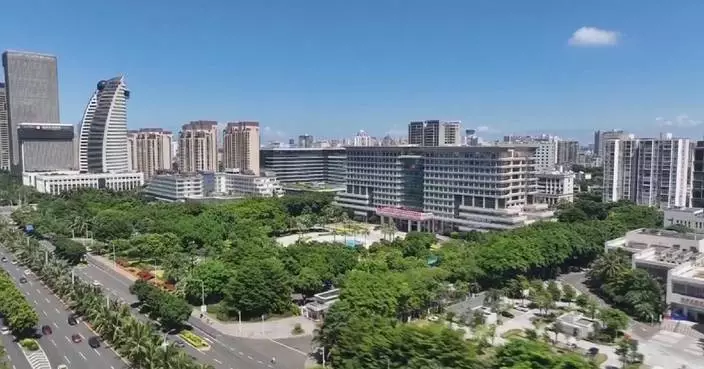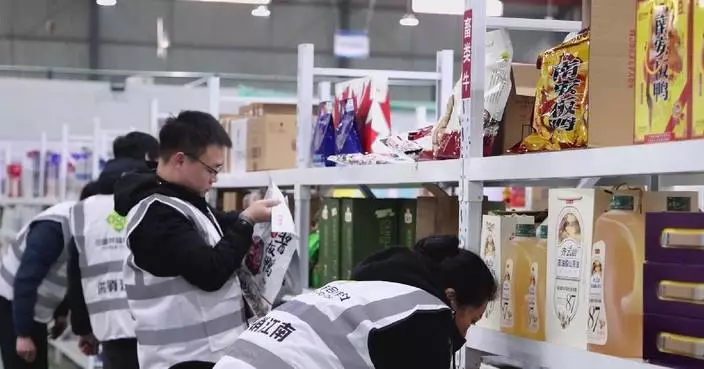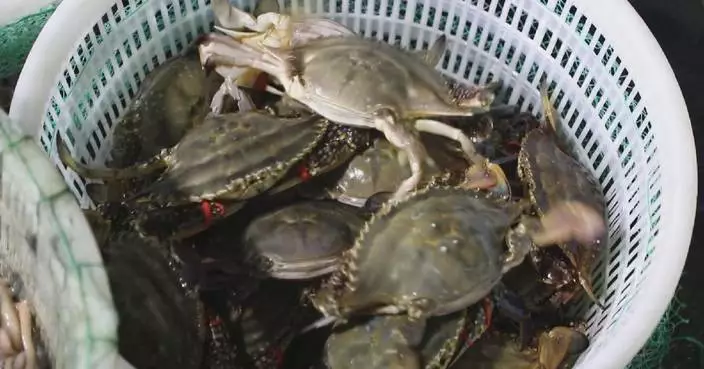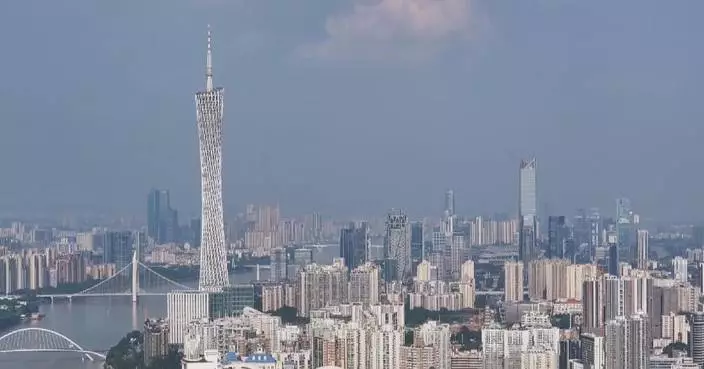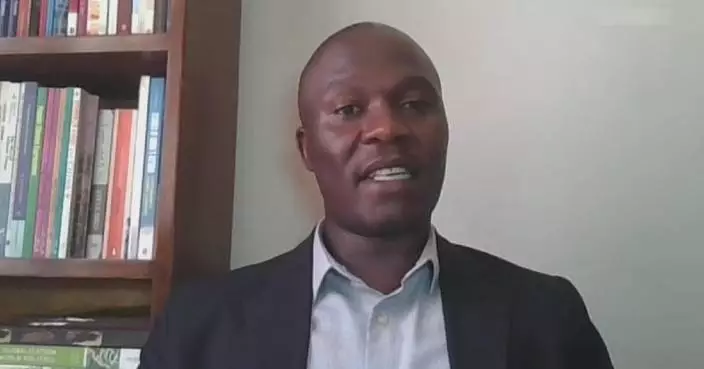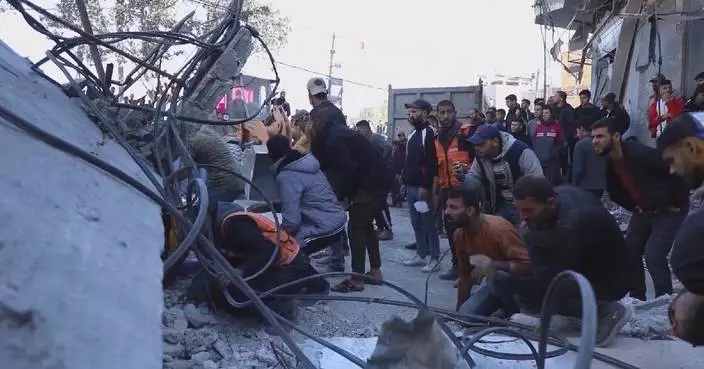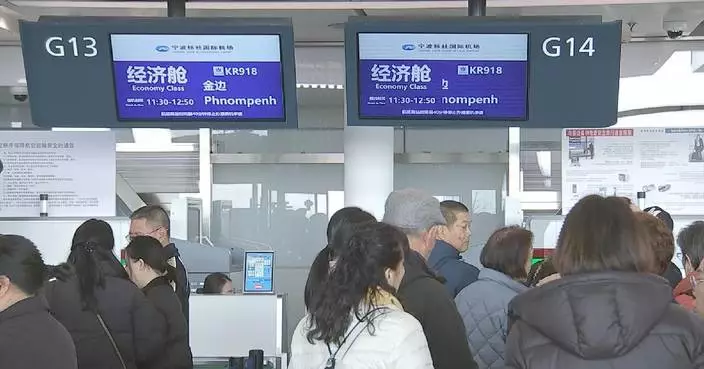The newly inaugurated China-Vietnam Detian-Ban Gioc Waterfall cross-border tourism cooperation zone is expected to facilitate travels and tourism between the two countries. Launched on Tuesday, the cooperation zone is the first of its kind in China. After its launch in Chongzuo in south China's Guangxi Zhuang Autonomous Region, the daily limit for cross-border travelers is increased from 500 to 1,000 on each side, and operating hours have been extended from five to six.
"Now tourists can enjoy longer visits and experience many more activities," said a deputy general manager of a Vietnamese travel agency.
The zone also introduces an innovative facial recognition system for entry and exit permits, allowing tourists to authenticate and make reservations via an application of the local police department.
"We received our permits in just ten minutes, and we are ready to go to Vietnam," said a visitor from Guizhou in southwest China.
Since its trial operation began on Sept 15 last year, the cooperation zone has received 1,232 cross-border tourist groups and nearly 18,000 visitors by Oct 10 this year.
"We will create more institutional innovations to make the China-Vietnam Detian-Ban Gioc Waterfall cross-border tourism cooperation zone a model for cross-border and green tourism," said Ban Huaqin, deputy director-general of the culture and tourism department of the Guangxi Zhuang Autonomous Region.
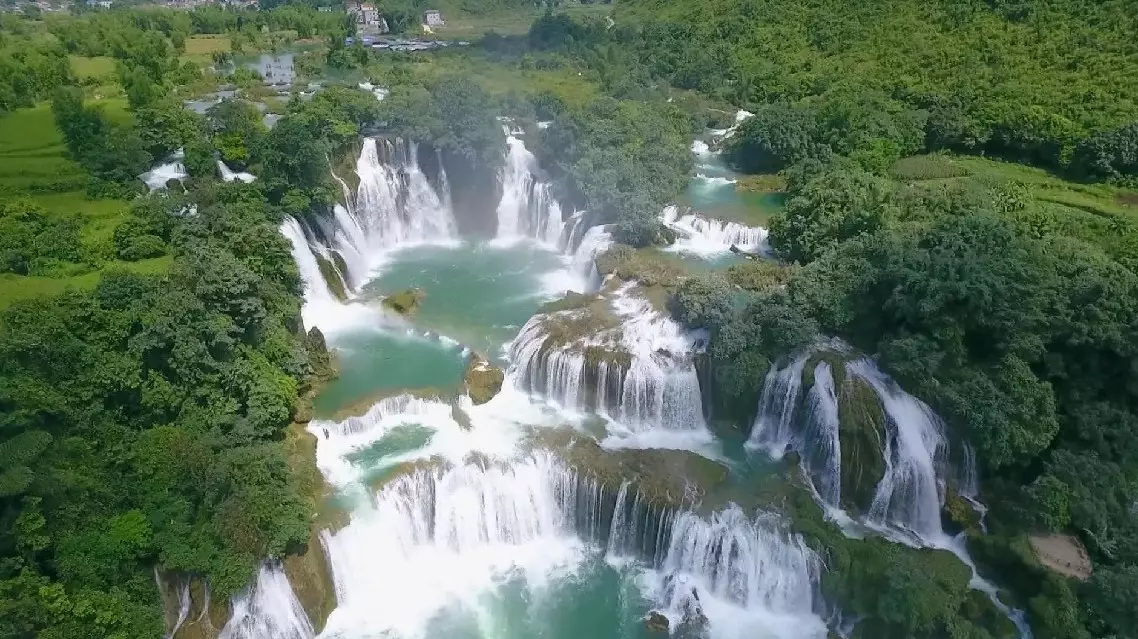
Cross-border tourism cooperation zone boosts China-Vietnam travels
A group of South Korean prosecutors and investigators of the anti-corruption investigative unit launched an attempt to arrest the impeached President Yoon Suk-yeol, multiple media outlets said Friday.
About 150 prosecutors and investigators of the Corruption Investigation Office for High-ranking Officials (CIO) headed for the presidential residence in central Seoul from the government office building in Gwacheon, Gyeonggi Province at about 06:14 on Friday.
The prosecutors and investigators arrived at the presidential residence at about 08:00 and about half of them entered the residence by 08:30.
The investigators were reportedly confronting agents of the presidential security service, who protect Yoon at close range inside the residence.
About 2,700 riot policemen were reportedly deployed to the residence to help proceed with the arrest warrant to arrest Yoon and search the president residence.
The CIO warned earlier that if the security service blocked the arrest, it would be a crime of obstruction of justice.
The detention warrant against Yoon was issued by a Seoul court on Tuesday to question the impeached leader over his martial law imposition on the night of Dec 3, 2024, which was revoked by the National Assembly hours later. Yoon had been named by investigative agencies as a suspected ringleader on insurrection charge.
The arrest warrant was scheduled to be effective for a week until Jan 6.
It marked the first time in the country's modern history that an arrest warrant was issued against a sitting president.
The CIO has been investigating Yoon's martial law imposition jointly with the National Office of Investigation and the Defense Ministry's investigation headquarters.
The impeachment motion against Yoon was passed in the National Assembly on Dec 14 and was delivered to the constitutional court for deliberation for up to 180 days, during which Yoon's power is suspended.
Yoon's defense team has said it cannot accept the detention warrant and called it "illegal and invalid". It filed an objection Thursday to the execution of the detainment warrant, as well as the search warrant, according to Yonhap news agency.
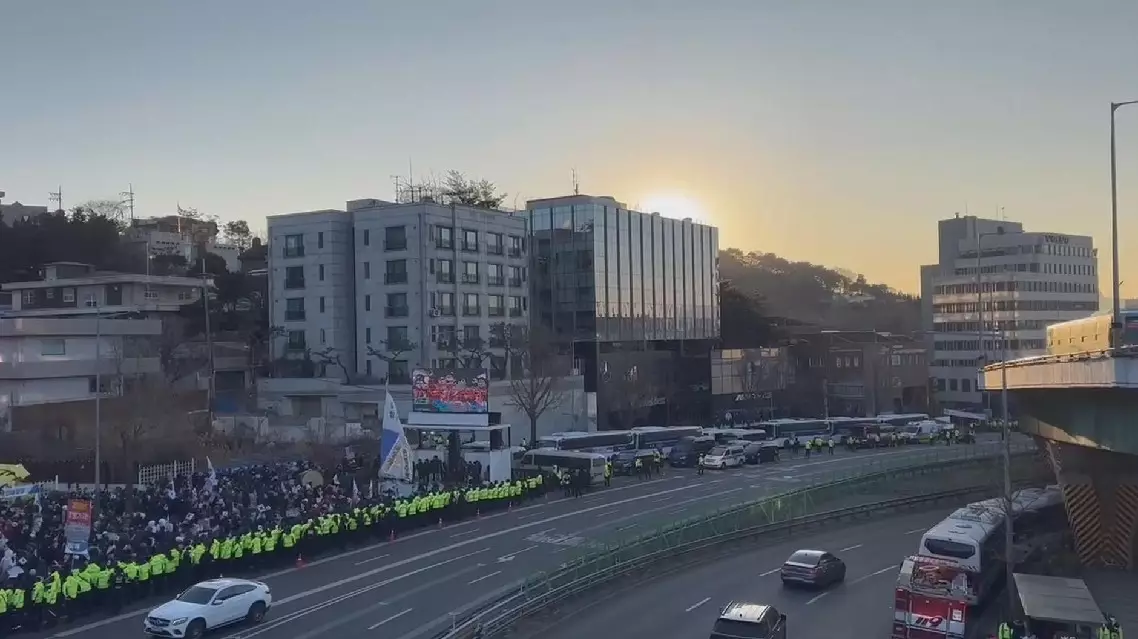
S Korean investigators launch attempt to arrest impeached President Yoon




